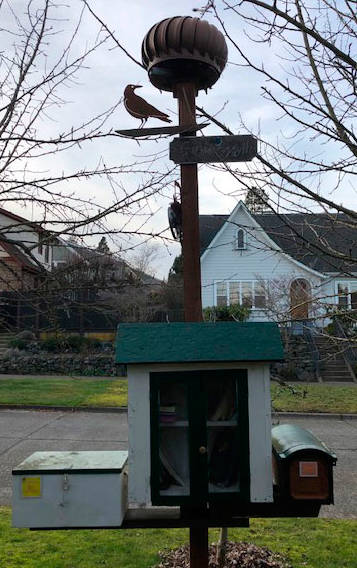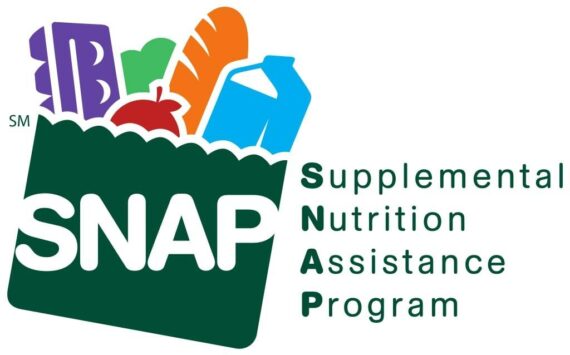By Morf Morford
Tacoma Daily Index
I’m a teacher by trade, although I think when it comes down to it, every mother, every father, every big brother, every big sister, every employer, every neighbor and maybe even everyone, at some time, in some respect is, or has been, or will be, a teacher.
With that in mind, I thought I’d spend a few minutes considering a few of the things we may, could have or should be learning from this whole “shelter in place”, “Stay home. Stay Healthy”, “Social Distancing” COVID-19 experience.
First, and perhaps most important: this too, shall pass. This experience, like all others, is not permanent. No situation, positive or negative or even seemingly pointless, will last forever.
Small things, as most of us have been discovering, matter far more than we knew before. Those things we previously ignored or took for granted are actually very powerful – hugs, handshakes, casual conversations – even with strangers – and yes, toilet paper, have a huge impact on the texture, pace and meaning of our daily lives.
We see our character, and that of our neighbors exposed – in any situation; even more in situations like this, we can make things better, safer and easier or we can make things more difficult, painful and worse.
Our care – or carelessness – has become all too evident.
Who of us will forget the images of hundreds, if not thousands of college students celebrating Spring Break with their usual mix of alcohol, party and play time when most of us (particularly the retired population in Florida) were essentially sheltering in place literally as a life or death precaution.
The contrast could not have been more striking. Who would have thought college students would imagine themselves impervious and carefree as they cavorted on Florida beaches in deliberate obliviousness of the national, if not global, emergency surrounding them?
This whole “social distancing” (do you think anyone could have come up with a more soul-less euphemism?) practice, though literally worldwide, has certainly brought out the best and the worst of us – and the best was far better, and the worst was far worse than I could have imagined.
Besides a moral divide, we are seeing a generational divide we never would have foreseen.
Some young people bought Corona Beer to cheer on the spirit, if not results of the lethal virus.
A man running for governor, bought a case of Corona Beer and called on his supporters to join him in a “finger-in-the-eye” (To the current governor? To COVID19? To civil decency? To medical professionals?) candidate’s rally.
Some people veer into conspiracy theories and call the virus a CIA/ alien/ One World Government conspiracy to “cull” humanity for either a global political or environmental agenda.
Did you hear for example of the teenagers seen on a store security camera deliberately coughing on produce in a grocery store?
Besides the political and cultural division we have become accustomed to, there is a unity rare in our times – perhaps any times.
Who among us does not have a new appreciation for doctors, nurses, pharmacists, teachers, caregivers, store clerks, utility workers, delivery people, postal workers, small-business owners and their employees and first responders of all kinds?
These are the heroes of our times – not politicians, or CEOs or business leaders. It is these people, most of them at least, who have been diligent, helpful and even literally life-saving.
These are the people who deserve our thanks – and far more than they are getting paid.
There are those who would lie, deceive and scam, if not endanger us all for their own gain. From US senators to toilet paper and sanitizer hoarders and re-sellers, there are those among us eager to take any opportunity to take advantage and leave the rest of us exposed, vulnerable or sick. They, under this COVID light, have shown their true colors.
Gun sales are booming. Some even feel compelled to carry their guns to the grocery store – as if grocery shopping were not stressful and unpredictable enough.
In other words, some see other people as the ultimate threat, while some of us see other people as the ultimate resource.
I saw an article on shoe-making recently. They made the point that any shoe is touched by 40-100 people as it is being made, transported, put on display, sold and finally passed along to the customer.
The same is true for any item that we buy. From an apple to a package delivered to our door, and yes, even those guns, everything we buy or use has passed through more hands than we could count. And we need each step. We need each producer, grower, retailer, delivery driver, and fast food worker to get what we want to us.
Our supply chain of everything from milk to toilet paper is another modern miracle that most of us don’t even notice – until the slightest glitch, in this case a microbe, up-ends it all.
We will get through this. We will get through this – together.
We might have to sacrifice (or put on hold) our most treasured objects, values, agendas or beliefs, but we, most of us anyway, will get through this.
We will look back on this time as a winnowing time when, like under a microscope, we see things we didn’t know were there.
We may not be aware of it, but we all have stories we tell ourselves about how the world works.
I have a friend who firmly believes in what he calls the law of the jungle; the larger animals feed on the smaller animals which feed on the even smaller animals which feed on even smaller animals. The largest animal of all feeds on everything else.
This is one of his guiding life-principles, and it makes sense. Until you think about it.
Here in the Pacific Northwest for example, bears, the undeniable top of the food chain, are in fact primarily vegetarian, eating a few fish but mostly field grasses, roots, tubers, nuts, berries of all kinds, fruits, and other foods. They will only eat other animals if they need to.
In fact my observations of nature tell me that my friend has it exactly backwards – it is the smaller animals that feed on (or scavenges from) the larger animals. And the smallest creatures of all, from insects to microbes, feed on us all.
In fact when plagues and catastrophes strike, it is the tiniest animals, from mice to mosquitoes, and certainly disease bugs, that flourish.
Size does matter, but in the opposite way that most of us think of it.
Times of difficulty tend to be times of reflection. We tend to take longer looks at what matters to us.
In times like these everything we thought was so important seems to drift away and what matters most is who we are in the crossfire of seemingly overwhelming challenges.
And some step up to the challenge.
One person in my neighborhood made a donation to a local restaurant to pay for the next customers’ meals until the money ran out. Others have been putting canned food in the local little libraries. I have been putting books that I have had in storage for years out in those little libraries. I have even considered putting dollar bills in some of those books.
A friend of mine is doing free online gardening sessions. Some of my younger neighbors are offering to do grocery shopping for their older or disabled neighbors.
Two teenage girls are mowing the lawns (and doing other yard care) for their neighbors for free. Their goal was to do fifty yards. They are more than half-way there.
“Social distancing” has perhaps reminded us most of all that we share far more than we ever knew, and those small (and sometimes not so small) gestures that make community also make us human.
We just might discover, unleash and make use of gifts, strengths, even powers we didn’t know we had.
And as humans always have, we will not only survive, we will prevail.





